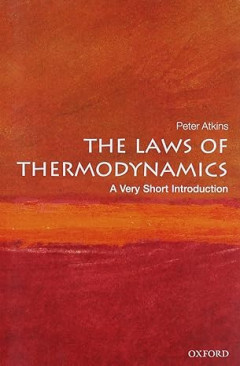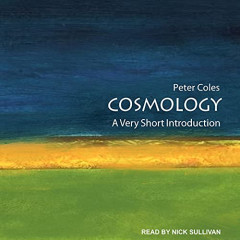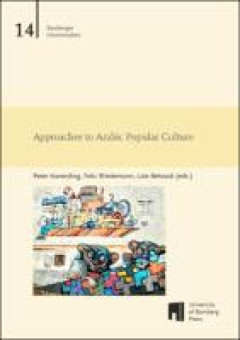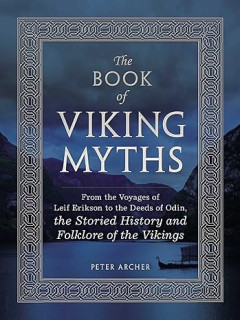Ditapis dengan

E-book Marx: A Very Short Introduction
In Marx: A Very Short Introdution, Peter Singer identifies the central vision that unifies Marx's thought, enabling us to grasp Marx's views as a whole. He sees him as a philosopher primarily concerned with human freedom, rather than as an economist or a social scientist. In plain English, he explains alienation, historical materialism, the economic theory of Capital, and Marx's ideas of commun…
- Edisi
- -
- ISBN/ISSN
- 9780192854054
- Deskripsi Fisik
- 120 halaman
- Judul Seri
- -
- No. Panggil
- 320.5322 SIN m

E-book Kafka: A Very Short Introduction
Franz Kafka is among the most intriguing and influential writers of the last century. During his lifetime he worked as a civil servant and published only a handful of short stories, the best known being The Transformation. His other three novels, published after his death, helped to found his reputation as a uniquely perceptive interpreter of the twentieth century. Discussing both Kafka's cr…
- Edisi
- -
- ISBN/ISSN
- 9780192804553
- Deskripsi Fisik
- 150 halaman
- Judul Seri
- -
- No. Panggil
- 920.71 ROB k

E-book The Laws of Thermodynamics: A Very Short Introduction
The laws of thermodynamics drive everything that happens in the universe. From the sudden expansion of a cloud of gas to the cooling of hot metal--everything is moved or restrained by four simple laws. Written by Peter Atkins, one of the world's leading authorities on thermodynamics, this powerful and compact introduction explains what these four laws are and how they work, using accessible lan…
- Edisi
- -
- ISBN/ISSN
- 9780199572199
- Deskripsi Fisik
- 121 halaman
- Judul Seri
- -
- No. Panggil
- 536.7 ATK t 002841-eB-0122

E-book Byzantium: A Very Short Introduction
After surviving the fifth century fall of the Western European Roman Empire, the Byzantine Empire flourished as one of the most powerful economic, cultural, and military forces in Europe for a thousand years. In this Very Short Introduction Peter Sarris introduces the reader to the unique fusion of Roman political culture, Greek intellectual tradition and Christian faith that took place in t…
- Edisi
- -
- ISBN/ISSN
- 9780199236114
- Deskripsi Fisik
- 322 halaman
- Judul Seri
- -
- No. Panggil
- 949.5 SAR b

E-book Cosmology: A Very Short Introduction
Written in simple and accessible language, this nontechnical introduction to cosmology, or the creation and development of the universe, explains the discipline, covers its history, details the latest developments, and explains what is known, what is believed, and what is purely speculative. In addition, the author discusses the development of the Big Bang theory, and more speculative modern is…
- Edisi
- -
- ISBN/ISSN
- B095J99XTN
- Deskripsi Fisik
- 143 halaman
- Judul Seri
- -
- No. Panggil
- 113 COL c

E-book Hegel: A Very Short Introduction
Hegel is regarded as one of the most influential figures on modern political and intellectual development. After painting Hegel's life and times in broad strokes, Peter Singer goes on to tackle some of the more challenging aspects of Hegel's philosophy. Offering a broad discussion of Hegel's ideas and an account of his major works, Singer explains what have often been considered abstruse and ob…
- Edisi
- -
- ISBN/ISSN
- 9780192801975
- Deskripsi Fisik
- 160 halaman, illus.
- Judul Seri
- -
- No. Panggil
- 921 SIN h
E-book The Blue Compendium : From Knowledge to Action for a Sustainable Ocean…
Global food demand is rising, and serious questions remain about whether supply can increase sustainably (FAO 2018). Land-based expansion is possible but may exacerbate cli-mate change and biodiversity loss, and compromise the delivery of other ecosystem services (Olsen 2011; Foley et al. 2005, 2011; Mbow et al. 2019; Amundson et al. 2015). As food from the sea represents…
- Edisi
- -
- ISBN/ISSN
- 9783031162770
- Deskripsi Fisik
- 914 hlm
- Judul Seri
- -
- No. Panggil
- 577.6 LUB t

E-book Approaches to Arabic Popular Culture
Over recent years, Arabic popular culture has become a focal point of West Asian and North African studies. Most of the new research dealing with it concentrates on the ‘popular’ as opposed to an intellectual ‘high’ culture far from the harsh and hierarchically organized reality many Arabic-speaking societies face today. Popular cultural practices are thus seen as a rejection of the eli…
- Edisi
- -
- ISBN/ISSN
- 9783863097660
- Deskripsi Fisik
- 230 halaman
- Judul Seri
- -
- No. Panggil
- 801.2 KON a

E-book The Book of Viking Myths: From The Voyages of Leif Erikson to The Deed…
For thousands of years, Vikings have held a storied place in our culture—their distinct appearance, their mighty longships, their reputation for causing death and destruction. But who were these strange and mysterious folk? The Book of Viking Myths retells the stories of the Viking people, with myths of their gods and goddesses, monsters, and great heroes. From tales of the beautiful and p…
- Edisi
- -
- ISBN/ISSN
- 9781507201435
- Deskripsi Fisik
- 201 halaman
- Judul Seri
- -
- No. Panggil
- 948 ARC t
E-book HBR's 10 Must Reads on MANAGING YOURSELF
The path to your professional success starts with a critical look in the mirror. HBR's 10 Must Reads on Managing Yourself will inspire you to: stay engaged throughout your fifty-plus-year work life; tap into your deepest values; solicit candid feedback; replenish physical and mental energy; balance work, home, community, and self; spread positive energy throughout your organization; rebound …
- Edisi
- -
- ISBN/ISSN
- 9781422157992
- Deskripsi Fisik
- 216 halaman
- Judul Seri
- -
- No. Panggil
- 650 HAR h
 Karya Umum
Karya Umum  Filsafat
Filsafat  Agama
Agama  Ilmu-ilmu Sosial
Ilmu-ilmu Sosial  Bahasa
Bahasa  Ilmu-ilmu Murni
Ilmu-ilmu Murni  Ilmu-ilmu Terapan
Ilmu-ilmu Terapan  Kesenian, Hiburan, dan Olahraga
Kesenian, Hiburan, dan Olahraga  Kesusastraan
Kesusastraan  Geografi dan Sejarah
Geografi dan Sejarah